Damien Zufferey
Multiparty Motion Coordination: From Choreographies to Robotics Programs
Oct 12, 2020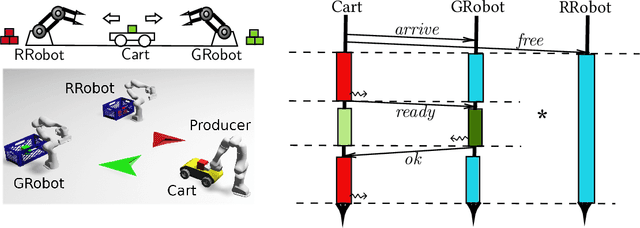


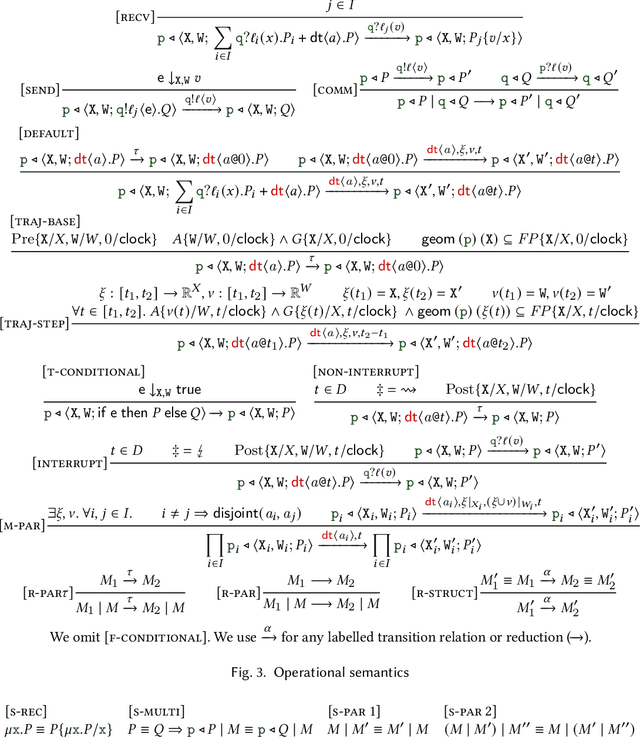
Abstract:We present a programming model and typing discipline for complex multi-robot coordination programming. Our model encompasses both synchronisation through message passing and continuous-time dynamic motion primitives in physical space. We specify \emph{continuous-time motion primitives} in an assume-guarantee logic that ensures compatibility of motion primitives as well as collision freedom. We specify global behaviour of programs in a \emph{choreographic} type system that extends multiparty session types with jointly executed motion primitives, predicated refinements, as well as a \emph{separating conjunction} that allows reasoning about subsets of interacting robots. We describe a notion of \emph{well-formedness} for global types that ensures motion and communication can be correctly synchronised and provide algorithms for checking well-formedness, projecting a type, and local type checking. A well-typed program is \emph{communication safe}, \emph{motion compatible}, and \emph{collision free}. Our type system provides a compositional approach to ensuring these properties. We have implemented our model on top of the ROS framework. This allows us to program multi-robot coordination scenarios on top of commercial and custom robotics hardware platforms. We show through case studies that we can model and statically verify quite complex manoeuvres involving multiple manipulators and mobile robots---such examples are beyond the scope of previous approaches.
DroidStar: Callback Typestates for Android Classes
Mar 02, 2018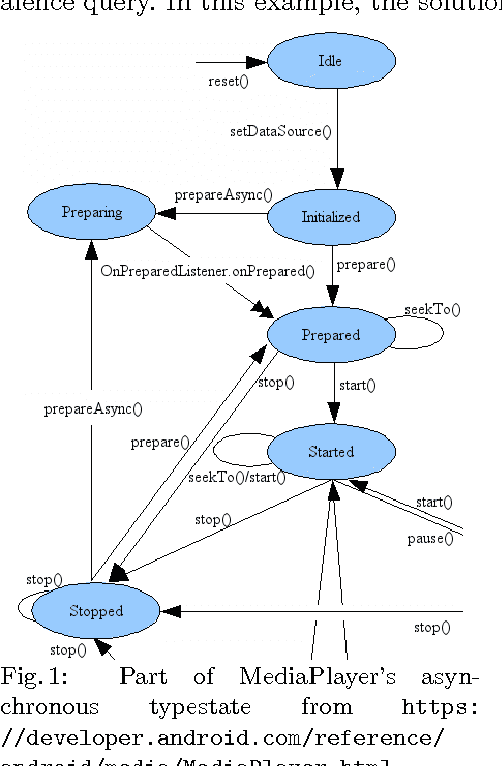
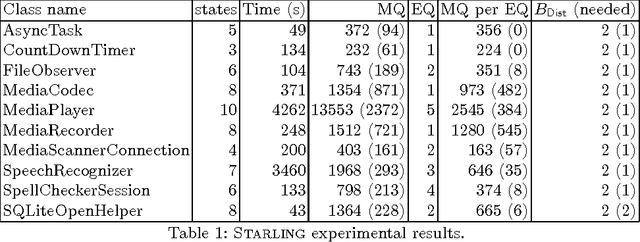
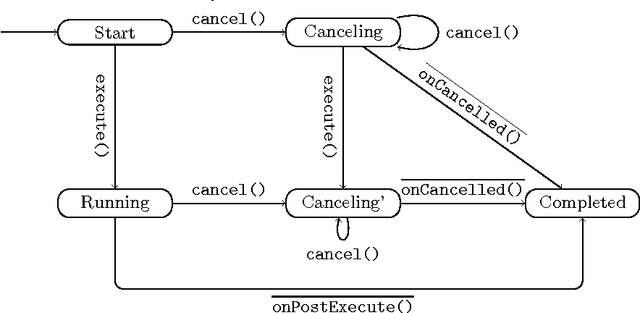
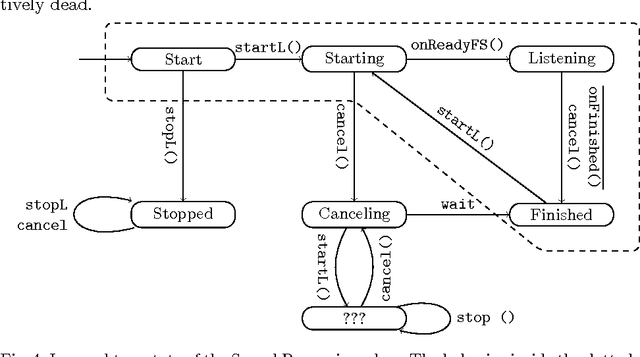
Abstract:Event-driven programming frameworks, such as Android, are based on components with asynchronous interfaces. The protocols for interacting with these components can often be described by finite-state machines we dub *callback typestates*. Callback typestates are akin to classical typestates, with the difference that their outputs (callbacks) are produced asynchronously. While useful, these specifications are not commonly available, because writing them is difficult and error-prone. Our goal is to make the task of producing callback typestates significantly easier. We present a callback typestate assistant tool, DroidStar, that requires only limited user interaction to produce a callback typestate. Our approach is based on an active learning algorithm, L*. We improved the scalability of equivalence queries (a key component of L*), thus making active learning tractable on the Android system. We use DroidStar to learn callback typestates for Android classes both for cases where one is already provided by the documentation, and for cases where the documentation is unclear. The results show that DroidStar learns callback typestates accurately and efficiently. Moreover, in several cases, the synthesized callback typestates uncovered surprising and undocumented behaviors.
 Add to Chrome
Add to Chrome Add to Firefox
Add to Firefox Add to Edge
Add to Edge